Kids can be annoying, especially when they’re loud in places that we do not want them to be. Nico Alary, the co-owner of Holybelly in Paris, France, said restaurants don’t like babies, toddlers, and infants. “Even if the owner is baby-friendly, most [servers] aren’t. They are messy, noisy, sticky, clumsy, disruptive miniature trainwrecks,” he wrote. “If you work in our industry, don’t tell me you don’t … go ‘f***-f***-f***’ in your head when you see a charming couple with a pair of adorable kids pushing the doors of the restaurant you’re working at. I just won’t believe you.”
Alary highlighted that this doesn’t mean the workers despise babies; maybe they’re also parents. “Those are two totally unrelated things. It just means that [they’re] a seasoned professional and that deep down they know that one way or the other s*** is about to hit the fan,” he explained. This is a story about one of those times.
Recently, Redditor u/Wrong_Ad_3951 ran out of patience with a “shrieking” boy while trying to enjoy a meal at a nice restaurant, so she went over to the nearby table to ask his parents to do something about it. However, after hearing the mom’s reaction, she started wondering if she overstepped.

Image credits: Marcos Paulo Prado (not the actual photo)
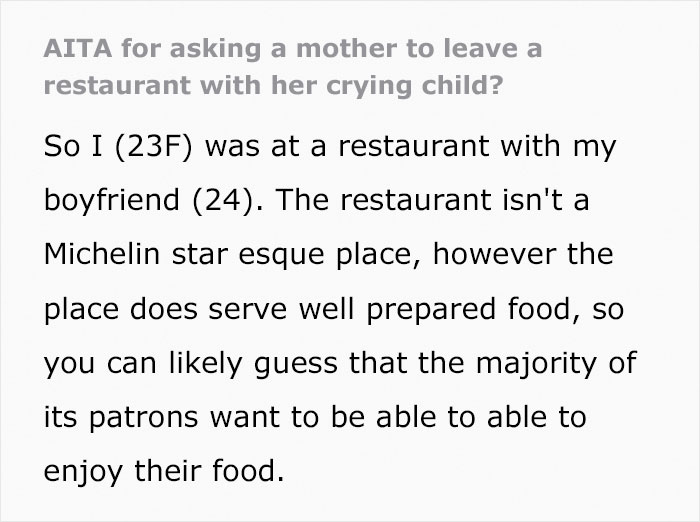

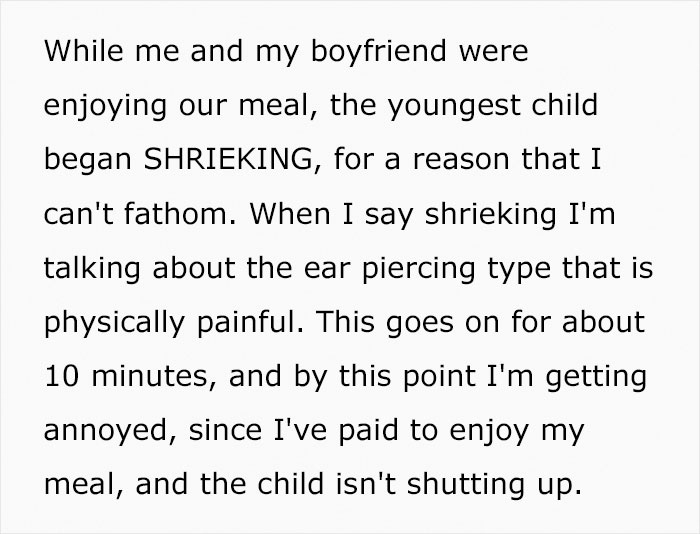
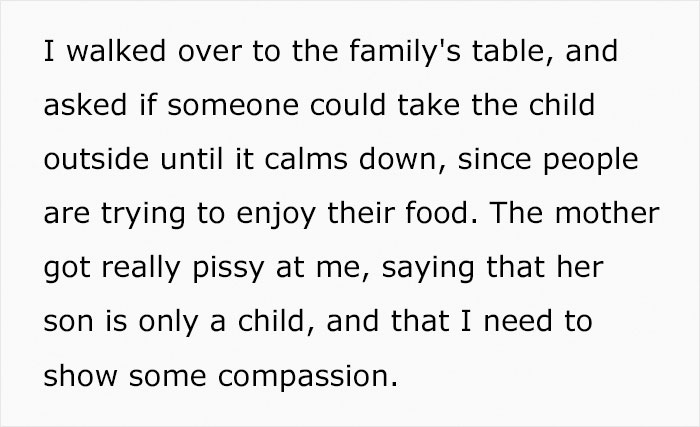
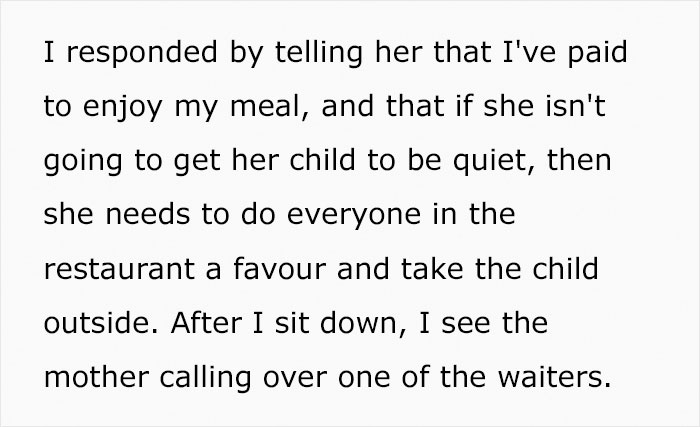


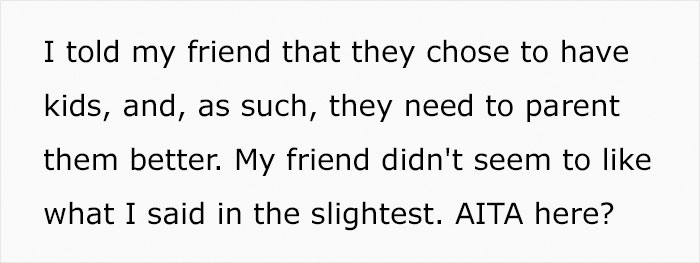
Talya Stone, a former editor-in-chief turned parenting blogger and the woman behind Motherhood: The Real Deal and 40 Now What, thinks that every parent knows how mortifying it is having to deal with your child’s tantrum in public. “Personally, my approach is to remove my child (and myself) from the immediate surroundings so I can diffuse the situation without the added pressure of spectators,” Stone told Bored Panda. “The added bonus of removing your child from the situation is that it serves as the best distraction, which is ultimately what you need lots of when handling a public tantrum. This also ensures that you can take your child somewhere safe where they ride out their big emotions without others wading in with their views. This is a good strategy because when researchers looked at the components of tantrums and how long they lasted, they found something of great interest — when parents intervened with a child in a full tantrum, it took longer for the tantrum to finish. You can only imagine what having the public involved might do to the duration of a tantrum!”

Table manners, on the other hand, start at home. “Model good table manners and dining etiquette, but also don’t expect miracles with young children,” Stone said. “All you can do is put the building blocks in place; age and development play big parts here. Also, try to eat together as a family as much as possible so kids can understand the sort of behavior expected of them at the table. Lastly, I would refrain from parking kids in front of a phone or tablet at the dining table which, although might be a brilliant distraction, ultimately teaches them nothing about how they should behave at the dinner table.”
Talking about this particular case, Stone feels that neither party can get off scot-free. “I think it’s really insensitive of the woman who complained about the child to do so. Everyone was a badly behaved child once and perhaps she had forgotten that! And the last thing a stressed-out parent needs when dealing with a tantrum is a busybody in the mix.”
“Equally, I feel the mum probably should have known when to cut her losses and exit the restaurant temporarily until the child calmed down,” the parenting blogger added. “Although in an ideal world she wouldn’t have been asked to, but would have done so of her own accord (perhaps she wasn’t even given the chance). Having said that, when your children are bringing down the house with their tantrums, it can be seriously tough to think logically, so all in all, I’m on the mom’s side because dealing with a tantrum in public is never easy.”
Some people thought that OP was being totally reasonable
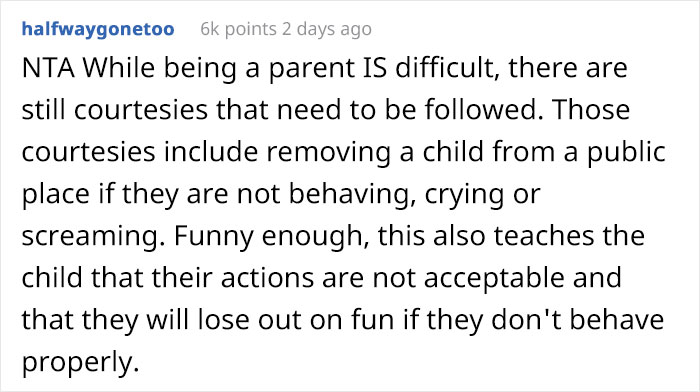
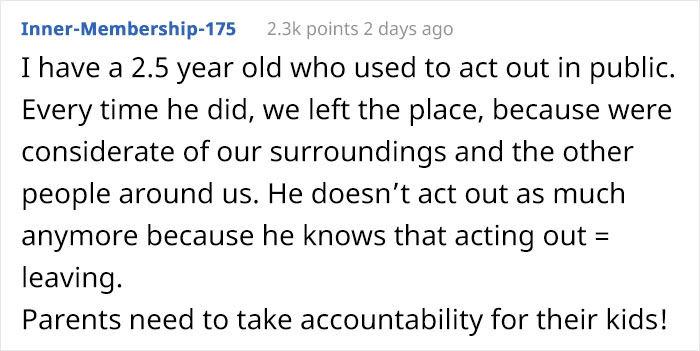

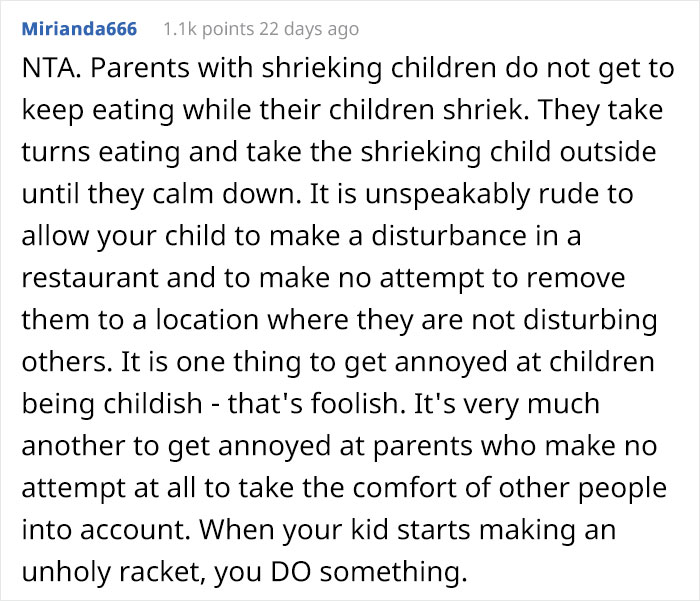
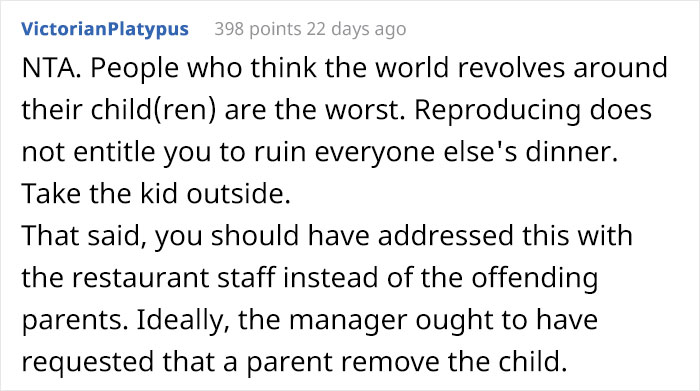
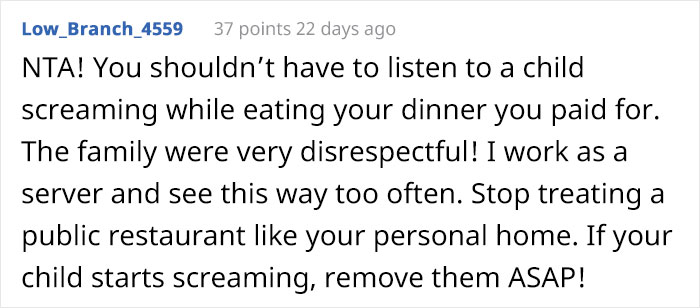
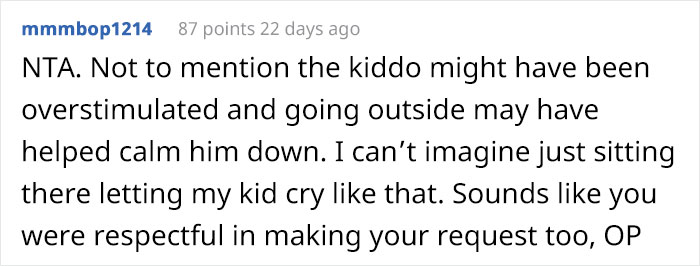
Etiquette expert Lisa M. Grotts says it’s a good idea to start with at least trying to sympathize with the parents of a screaming child.
“My heart goes out to those who try to curb bad behavior,” she explains.
With that being said, Lisa thinks a lot like Talya Stone and provides these 4 ways for taming problems at the table:
Practice makes perfect. “When you have dining rules at home, you can reinforce them before you go out, such as reminding children to be on their best behavior in public, to use their church voice, etc.”
Distractions help. “Find anything that will keep kids’ attention when the food won’t, such as books, coloring projects, etc.”
Manage expectations. “Sometimes an unplanned hug may work, but if you’re in a tough spot, be clear, from ‘Stop that,’ to ‘Be nice,’ etc.”
Remove the child from the situation. “Why add insult to injury? If the outburst won’t stop, then you stop it by removing your child from the table.”
At the end of the day, we should all remember that a little bit of empathy can make a huge difference. “Tantrums! [All parents] hate them,” Talya Stone said. “Particularly the ones where everyone’s watching! Standing by while your child puts on a show isn’t much fun. You can feel helpless and incompetent and just want it to end. But the bottom line is that all parents have had to deal with difficult moments and a little understanding from others goes a long way.”
While others believed the situation wasn’t all black and white
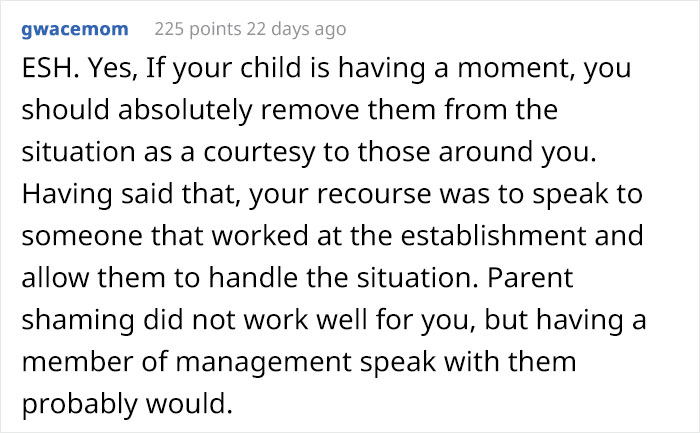
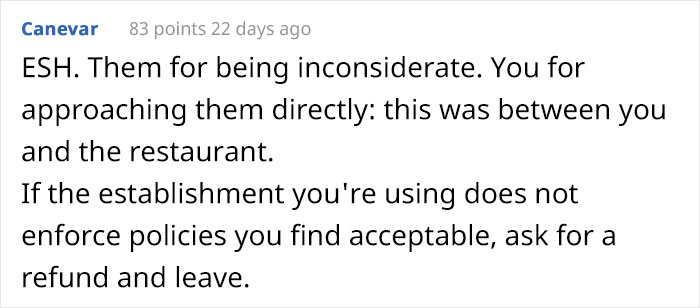
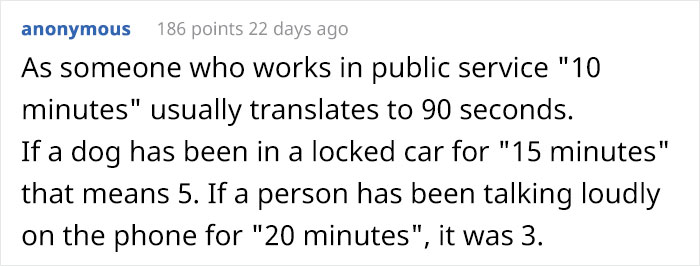
Source: boredpanda.com








